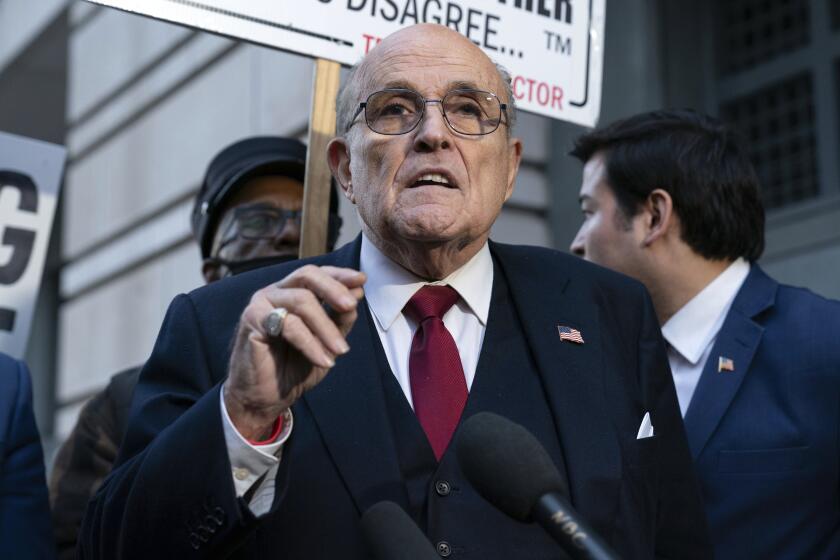Church Fails Own Employees, 2 Claim
Although American churches often complain that society does not do enough for the poor, it is a rare thing for officials of a church to make the same accusation against their own colleagues.
But now two Roman Catholic spokesmen have attacked the church for failing to practice what it preaches when it comes to the lowest-paid church employees.
Bishop William McManus, who retired earlier this year as bishop of Fort Wayne-South Bend, Ind., says a “wide, glaring gap” separates what the church teaches about economic justice from the way it treats its own employees.
“The U.S. bishops advocate a ‘preferential option’ for the poor, but I have seen little preference shown to the church’s lowest paid, most insecure employees--janitors, domestics, rectory secretaries and organists,” he said.
Example Urged
Citing the latest emphasis on justice for the poor in the draft of the bishops’ planned pastoral letter on the U.S. economy, he said it urges the church to set an example, but the church falls far short of doing so.
He said in a recent address, “Getting Our House In Order,” in Brooklyn that increased Catholic contributions are necessary to pay church workers better.
“Most of these underpaid persons survive at the whim of their employer,” he said. “There’s no pay scale for them, no passage to a better job, no pension which, even coupled with Social Security’s retirement benefits, would be adequate in their old age.
“Instead of being preferred, the poor employed by the church are trampled upon; a Christmas turkey and a tax-free bonus are no remedy for gross injustice.”
Similar criticisms were reported by National Catholic News Service in an editorial in the Seattle, Wash., archdiocesan newspaper, The Progress.
It said that the church “has a Kleenex approach to employment. It uses people up and then tosses them aside.”
All levels of the church have a “scandalous history of abusing its workers,” who often leave their jobs “burned out and bitter,” the editorial said.
It said church wages have improved over the last 10 years but that further adjustments are needed.
Employees of various Protestant and Catholic organizations recently have become more assertive in seeking better pay. Staff workers in New York for the National Council of Churches have organized for collective bargaining.
At the Vatican, lay workers early this year proclaimed a “state of agitation” until officials agreed to consider pay raises.
While most major Protestant, Jewish and Roman Catholic bodies have advocated unionization of workers to obtain improved wages, the religious groups seldom encourage their own employees to join a union.
On the contrary, Bishop McManus said, some Catholic hospitals and schools have actively sought to block collective-bargaining processes.
More to Read
Start your day right
Sign up for Essential California for news, features and recommendations from the L.A. Times and beyond in your inbox six days a week.
You may occasionally receive promotional content from the Los Angeles Times.






